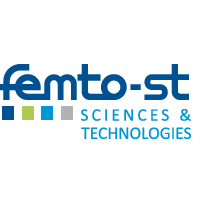Delft University of Technology, Netherlands
Tentative title:
Microengineering organs-on-chip
Abstract:
Born at the confluence of cell engineering and microfluidics, Organ-on-chip (OoC) technology aims at recapitulating in vivo (phato)physiology of human tissues and organs within small devices hosting cell co-cultures under dynamic and physiologically relevant microenvironments. Maintaining the latter requires perfusion, electro-mechanical stimuli and real-time sensing of local parameters. OoC devices represent therefore a growing field of application for microfabrication, microsystem integration and microrobotics, as I will show in my talk.
Biography:
Massimo (Max) Mastrangeli is Assistant Professor (tenure track) at TU Delft’s ECTM laboratory, where he is developing novel silicon/polymer-based organ-on-chip and nanoparticle-based devices. He acts as guest editor, editorial board member and reviewer for several technical and scientific journals, and is steering committee member and technical program committee member for several international conferences. Prior to joining TU Delft, Dr. Mastrangeli held research appointments at the Max Planck Institute for Intelligent Systems (Stuttgart, Germany) for soft microrobotics and granular matter, at the Université Libre de Bruxelles (ULB, Belgium) for micromechanics and capillary micromanipulation, at Ecole Polytechnique Fédérale de Lausanne (EPFL, Switzerland) for micro/nanofabrication and distributed robotics, and at imec Belgium (Leuven, Belgium) for fluidic microsystems integration and microelectronic packaging. Dr. Mastrangeli holds a BSc and MSc degree (both cum laude) in Electronic Engineering from University of Pisa (Italy) and a PhD degree in Materials Engineering from University of Leuven (Belgium).

